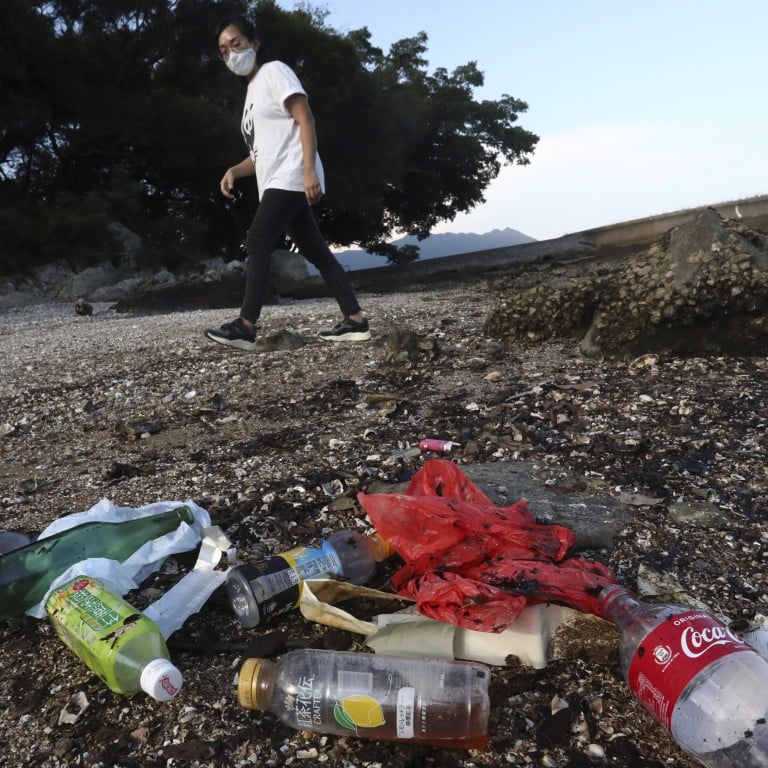
Is Hong Kong doing enough to limit plastic pollution? Supermarkets and other food vendors are slow to reduce single-use plastic use, and alternatives can’t compete
- Most of the plastic rubbish that turns up or washes up on Hong Kong beaches ‘is what you can usually find in the supermarket’, a clean-up volunteer says
- The coronavirus pandemic spurred use of single-use plastics, and while some businesses have acted, only small steps towards banning them have been taken
June Wong So-kwan picks up plastic takeaway cups and boxes, bottles, wrappers and containers on her regular rubbish collection trips to Hong Kong’s beaches.
“When I do beach clean-ups in Hong Kong, I find a lot of these kinds of wrappers, the prepack containers,” she says. “This is what you can usually find in the supermarket. I think it’s a very big issue.”
One of many volunteers who patrol the coast in their spare time, the manager for marine pollution at WWF-HK collects the trash in an attempt to keep the city’s beaches clean and to prevent plastic rubbish from floating out to sea. It’s a never-ending task.
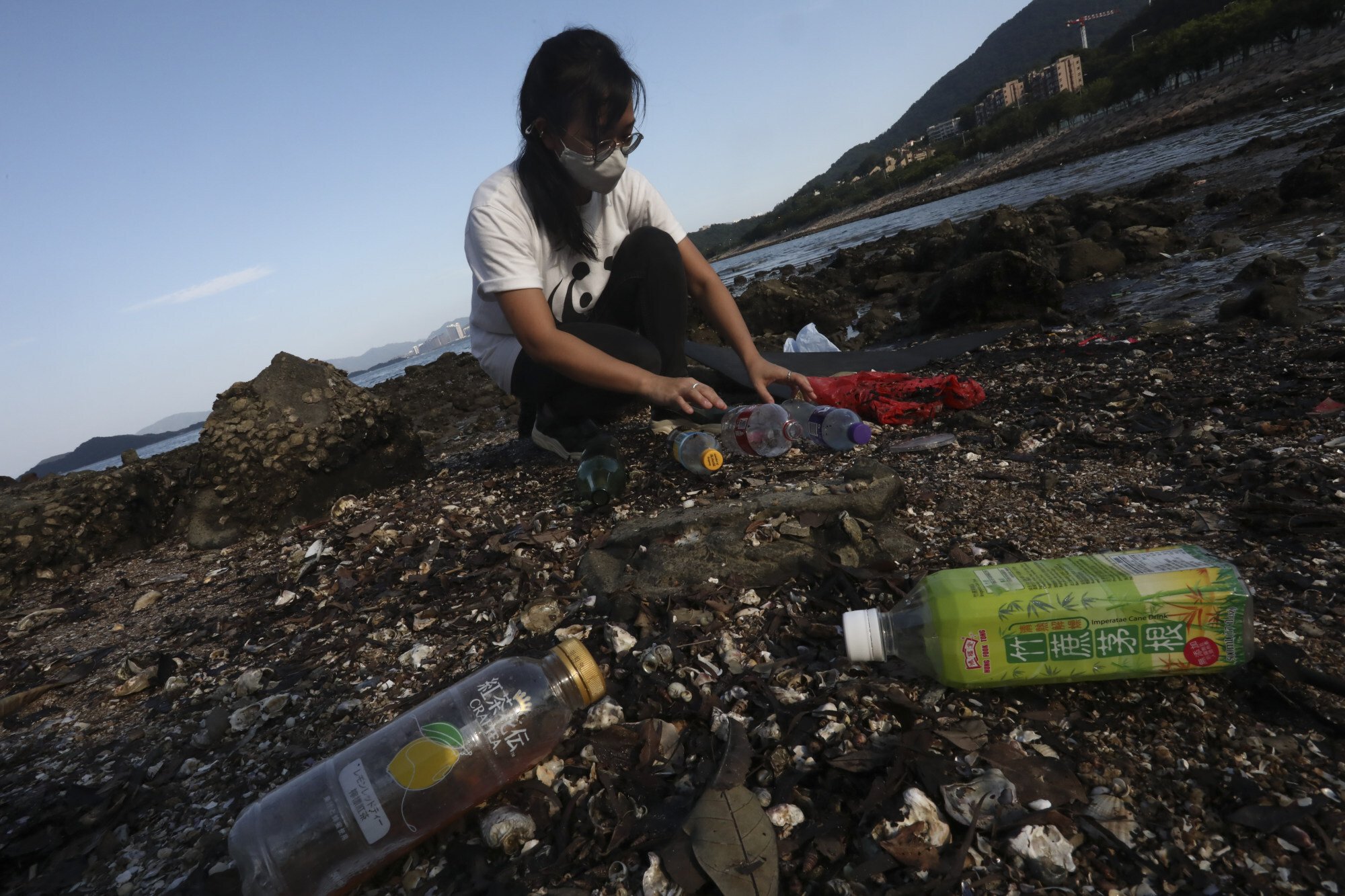
Some of the plastic seems entirely redundant: toilet rolls are individually wrapped and sold with other rolls in a larger bag, boxes of canned drinks are wrapped in plastic, and vegetables and fruit are packaged in boxes or bags.
Most of the ParknShop plans she outlines, though, will take many years to come into effect. The only short-term plan is to phase out expanded polystyrene (EPS) by next year.
Over the longer term, ParknShop will possibly extend a trial of plastic-packaging-free fruit and vegetables; reduce single-use plastic items by half, reduce plastic carrier bag use by 30 per cent, and expand the number of refill stations in supermarkets – all by 2030.
“Irrespective of the government’s plans, we are constantly reviewing possible initiatives to reduce plastic waste sent to landfill,” the ParknShop spokeswoman says.
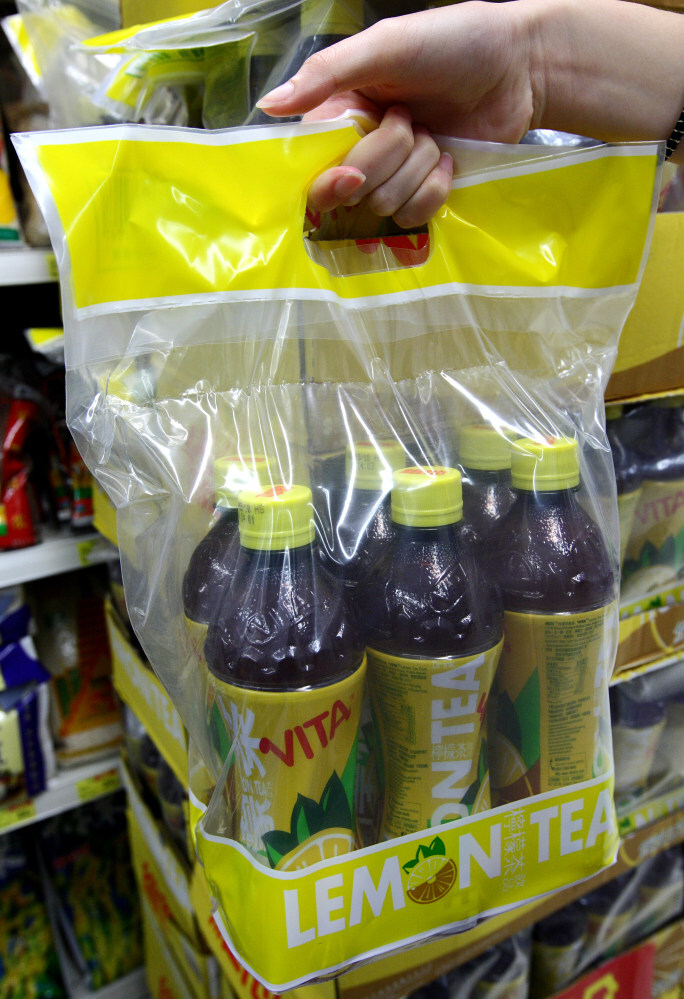
Meanwhile, an Environmental Protection Department (EPD) spokesman says Hong Kong’s Council for Sustainable Development at some point in the future will engage the public on the issue of plastic packaging.
“The government has invited the Council for Sustainable Development to launch a public engagement to collect views from the public on the means, scope and priorities of control, as well as the relevant timetable,” he says.
Most of the plastic rubbish in the world’s rivers and oceans comes from grocery shopping or takeaway dining. Twelve million pieces of rubbish were categorised for a study published in June. Roughly 80 per cent of the surveyed marine rubbish was plastic.
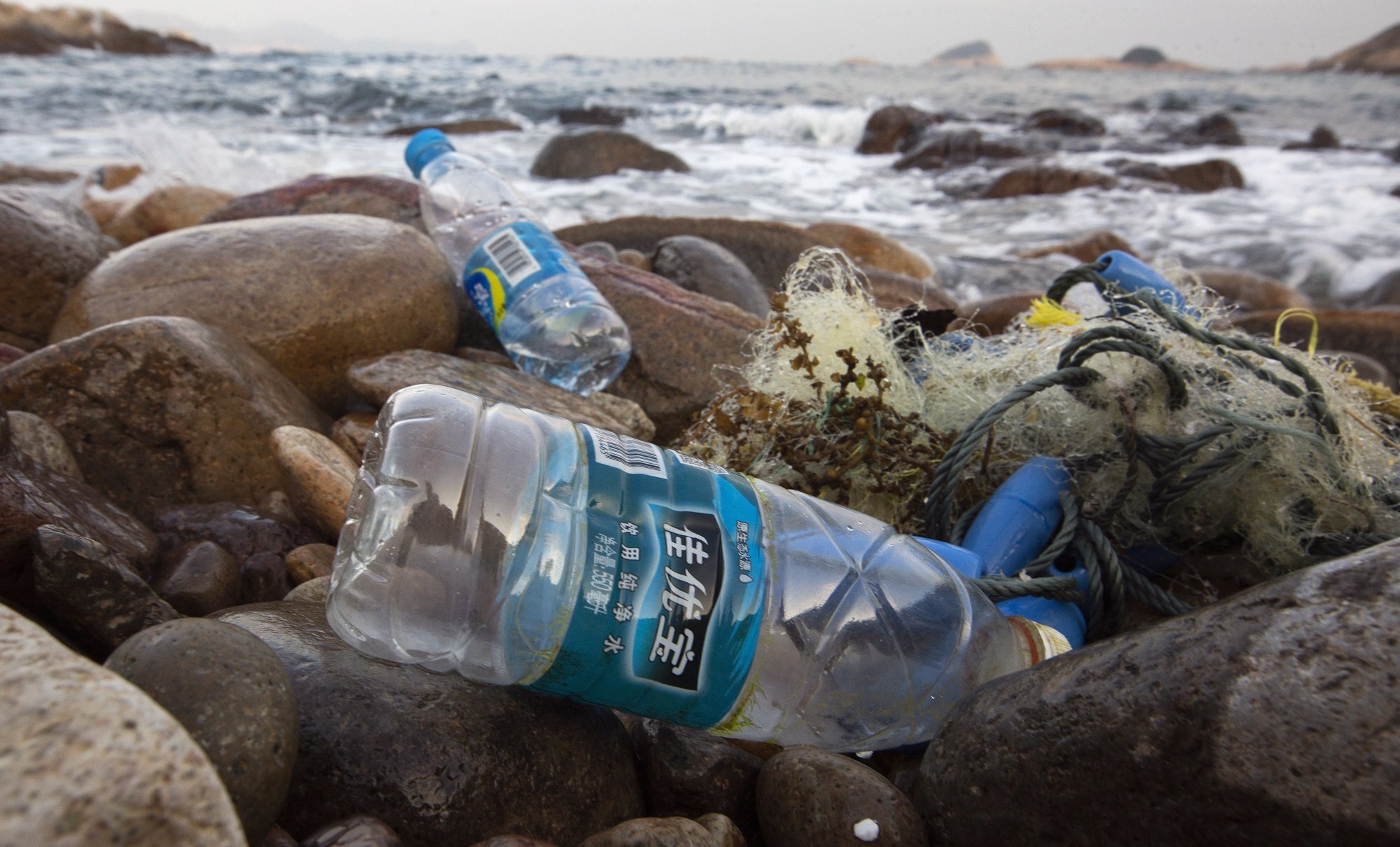
Lead author Dr Carmen Morales from the University of Cadiz in Spain says a lot of work needs to be done around the world to limit plastic waste.
“We can see some small steps, but sometimes these don’t address the core of the problem,” the research scientist says. “Consumers need to be informed and be able to choose.”
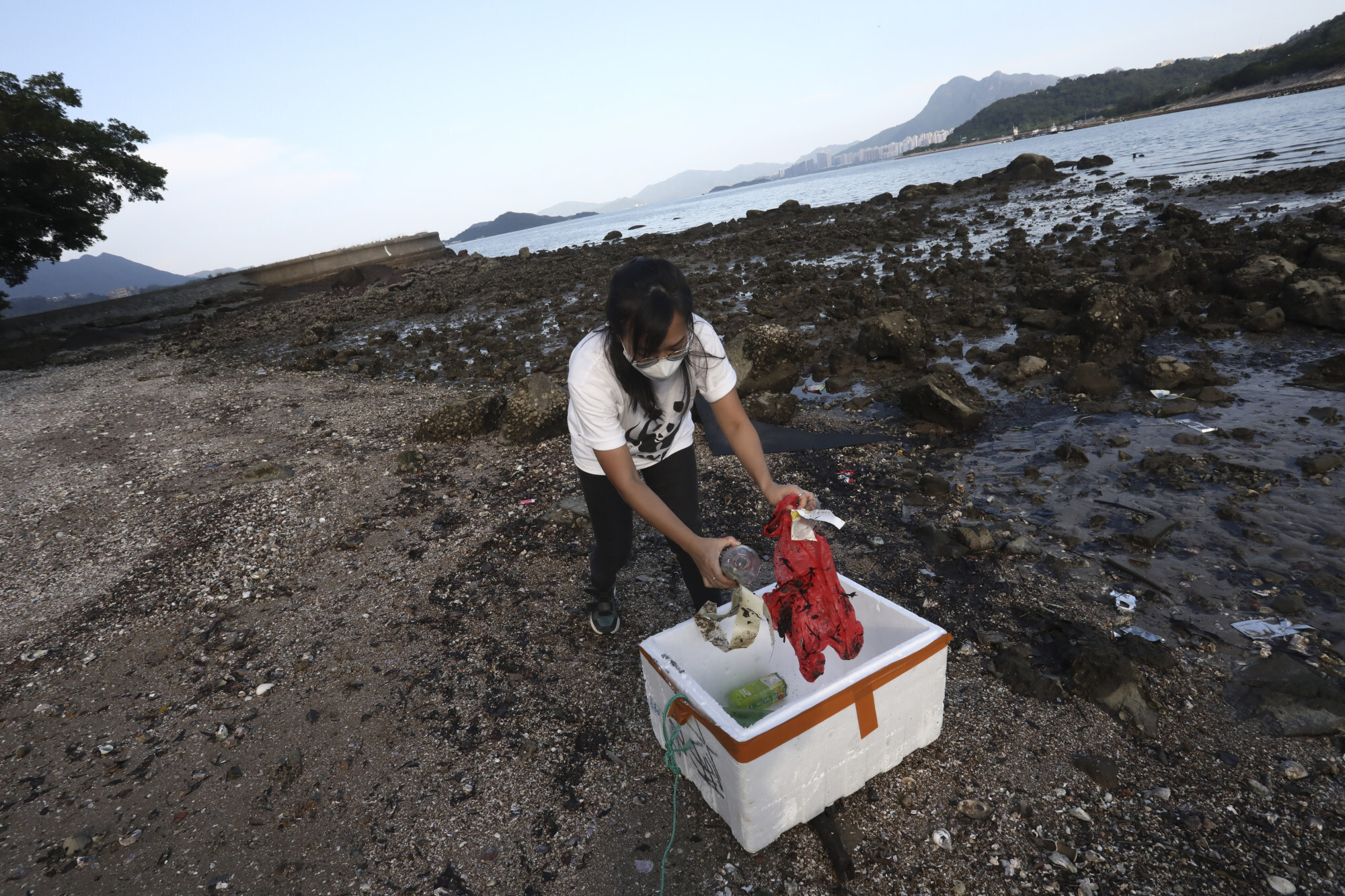
She warns that false claims of environmental benefits are a widespread problem. “Greenwashing is all over the place, and creates a lot of confusion.”
Nations around the world are taking legislative steps to reduce the amount of plastic that washes into the ocean. Japan has announced that from April 2022, businesses will be forced to cut down on the provision of 12 plastic disposable items, including spoons and straws, to tackle marine pollution.
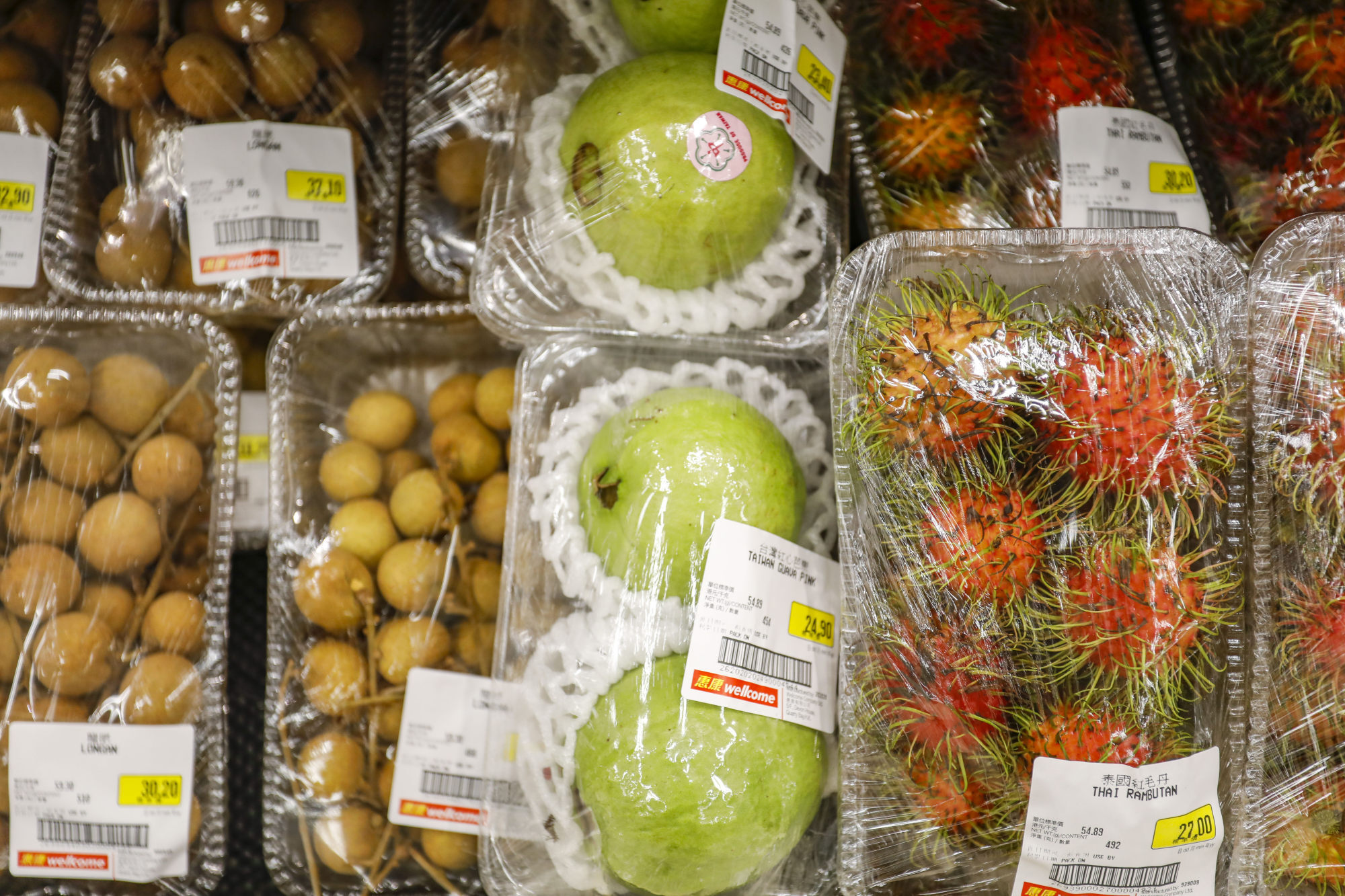
The consultation encompassed many of those plastic bits and pieces that travel from restaurants to beaches, rivers and the oceans. Single-use plastic plates, straws, stirrers, cutlery, plates, cups and lids, food containers and covers will eventually be regulated under the proposed scheme.
Phase one of the scheme, covering only EPS tableware, is not expected to begin until 2025.
WWF will use the trigger of the tableware consultation to educate restaurateurs and restaurant chains on the importance of cutting back on single-use plastics.
No matter what other materials we are trying to compete with in the market, we can’t compete with plastic
“We will give talks to the restaurants so they can understand more how serious the problem is,” Wong says. “The restaurants have to know about the consultation; what they are going to face in maybe a few years.”
Results will be released by early October.
Plastic bags are routinely provided automatically in Hong Kong’s wet markets and local food outlets unless customers refuse them.
“It would be good if sales assistants had a message for those who don’t use plastic bags; something like ‘thanks for helping the environment’,” says Wong.
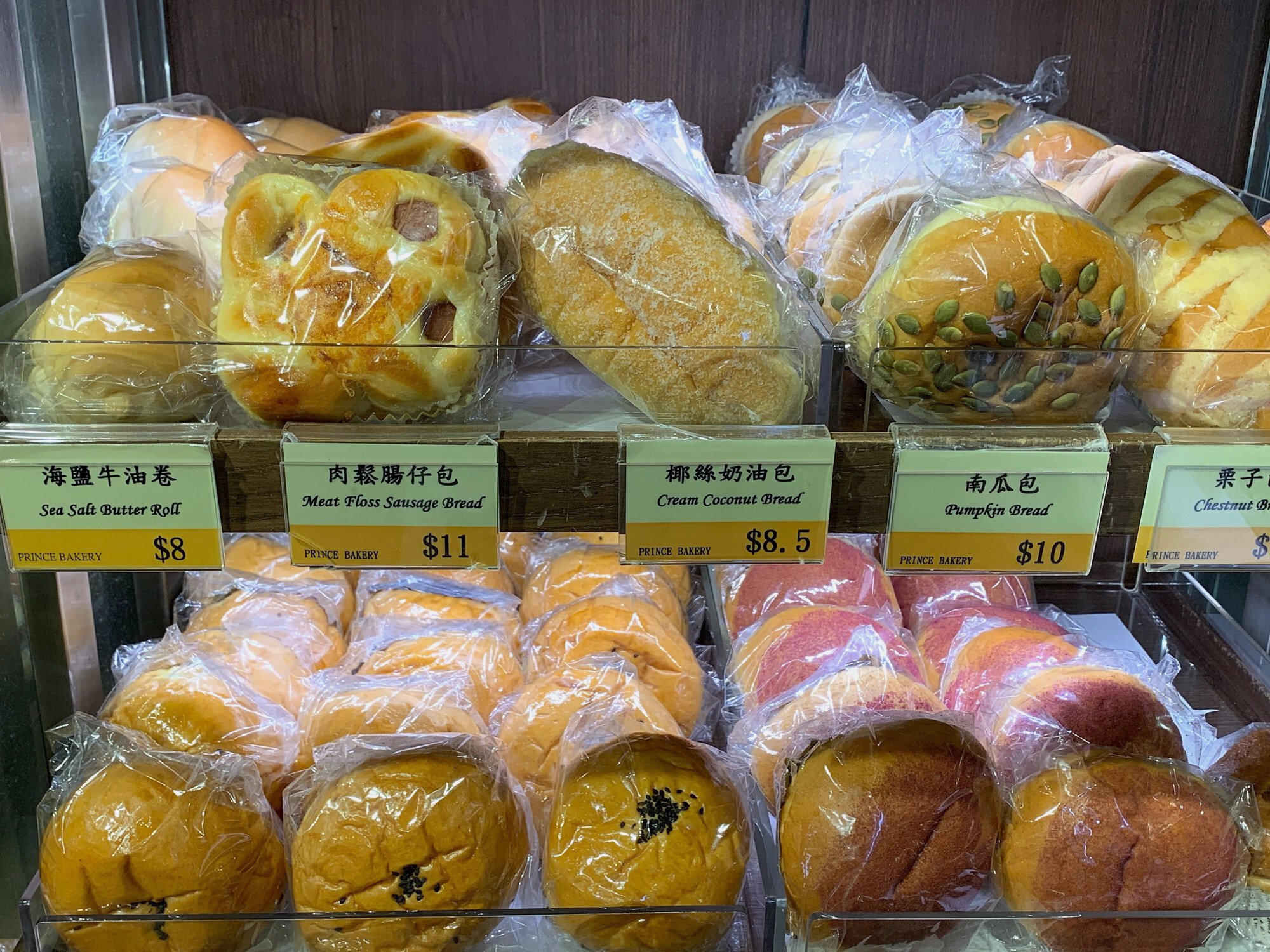
Some larger food and drink chains are forging their own way. The Starbucks coffee chain says it has introduced wooden cutlery and reusable cold-drink cups in 850 outlets in Shanghai, and will roll them out to stores across China by the end of 2021. The brand will also offer discounts to customers who bring in their own cups.
In Hong Kong, Starbucks has introduced biodegradable paper straws and wooden stirrers, as well as biodegradable plastic utensils and salad boxes.
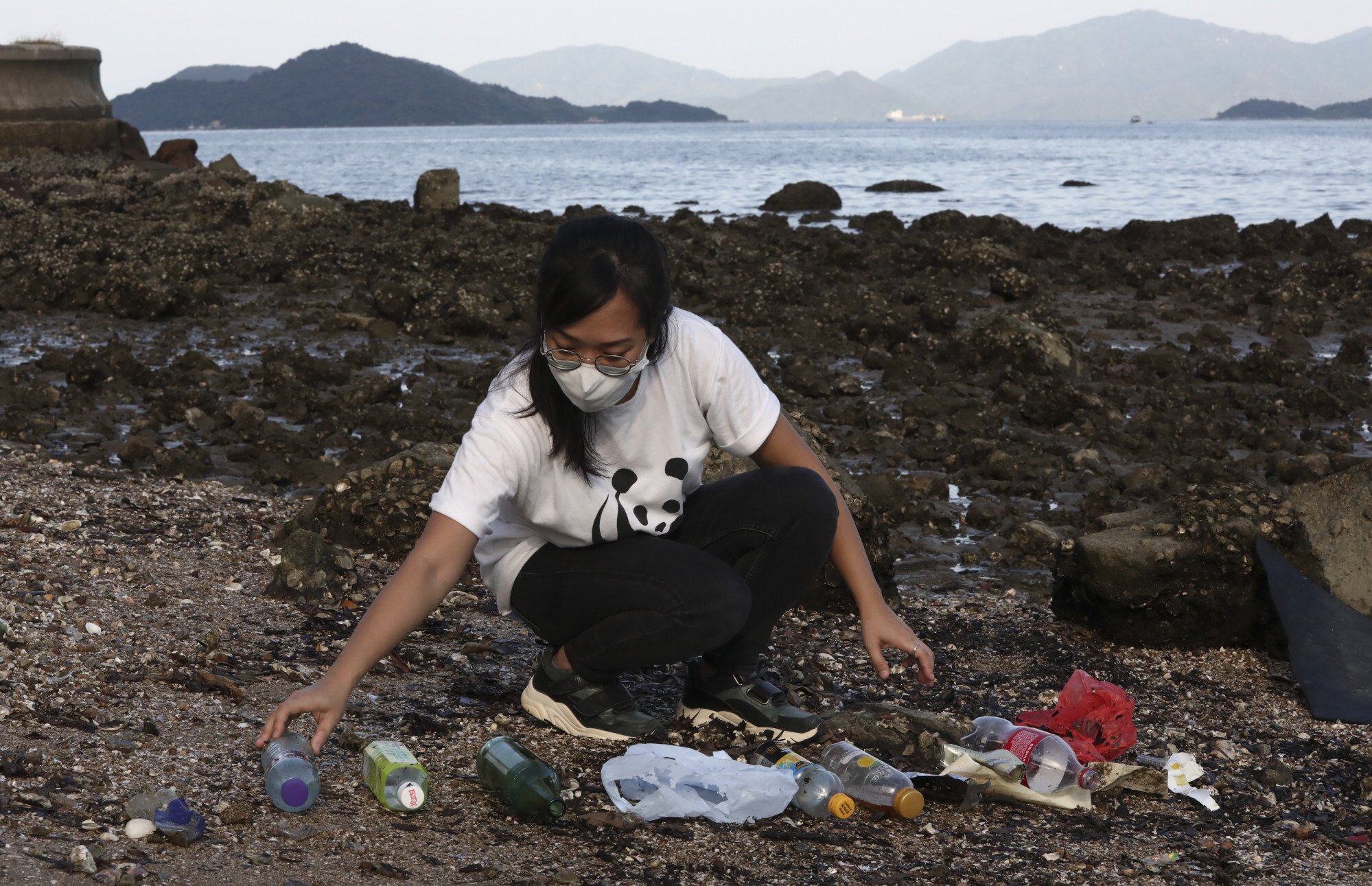
Sustainable bag and packaging companies sprang up in Hong Kong to supply the burgeoning demand for alternatives to single-use plastics.
These organisations have to grapple with the reality that plastic bags, containers and packaging are nearly always far cheaper than their alternatives. It seems that, unless steps are taken to subsidise biodegradables or to force the business world to cut down on plastic consumption, change is unlikely.
“Plastic has been in the market for so many years and we can’t deny the fact that plastic is very convenient and very useful,” says Devana Ng, co-founder of the Invisible Company, which sells single-use bags made from polyvinyl alcohol – which disappear in boiling water.
“The price of plastic is very, very cheap,” she says. “No matter what other materials we are trying to compete with in the market, we can’t compete with plastic.”
